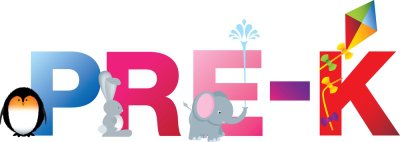Pre-kindergarten , also called pre-k, is an essential period of education and interaction in every child’s life. By attending a qualified pre-k program in Pembroke Pines, children can learn a variety of necessary skills and subjects that will positively influence their future education and social interactions. If you have ever been curious about what children learn in their pre-k programs, speak with a pre-k school near you and continue reading to learn more.
Love of Learning
 One of the most important learning skills children can learn with pre-k is a love of learning. Pre-kindergarten teachers are trained in making learning exciting. They can show children the adventure found when trying to discover something new. As children experience this excitement and thrill, they are learning skills to help with future reading, math, and history subjects. When children can associate learning with fun and excitement, they are more likely to enjoy learning as they continue through school.
One of the most important learning skills children can learn with pre-k is a love of learning. Pre-kindergarten teachers are trained in making learning exciting. They can show children the adventure found when trying to discover something new. As children experience this excitement and thrill, they are learning skills to help with future reading, math, and history subjects. When children can associate learning with fun and excitement, they are more likely to enjoy learning as they continue through school.
Teamwork and Independence
Though the two terms, teamwork and independence, are contradictory, they are both important skills children learn in their pre-kindergarten class. Up until the pre-kindergarten age, usually 4 years old, many children may not have had much interaction with other children. Some children have only relied on their parents to do most chores for them. By attending pre-k, children can learn two valuable skills needed to get through life. They can learn how to play and work well with their peers. They can also learn how to clean up their messes or finish a project by themselves.
Early Subject Skills
Many parents enroll their children in a pre-k program because it gives the children a head start in learning necessary subject skills. Children will learn, in fun and engaging ways, about the early concepts of reading, math, and language. They are often exposed to earth science, art, music, and simple history. As children learn these pre-academic skills, they can enter kindergarten and grade school better equipped to learn harder concepts.

